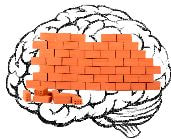|
Also called a “crash,” postexertional malaise means sudden worsening of physical and/or cognitive symptoms of myalgic encephalomyelitis at some point after physical or cognitive exertion. Example: I drive 60 minutes and 10 minutes after arrival must lie down because of exhaustion and a pounding headache. The symptoms and interval between exertion and malaise onset vary among patients. In any case, the worsened symptoms are worse than what healthy people feel after “overdoing it.” Ways to slightly lessen the effects of postexertional malaise include resting extra before and after the exertion and respecting the limits of one’s normal energy budget. I hope this makes caregivers and health sciences students more understanding of myalgic encephalomyelitis patients’ limitations and invisible struggles. Ask me any questions in the comments. Darla Nagel is an editor and writing tutor who has an invisible chronic illness. She wants to help other patients and enlighten health care professionals about our experiences. If you’d like to receive quarterly updates from her, sign up by emailing [email protected].
0 Comments
Brain fog is the inability to think something through in a connected way and to concentrate, with short-term memory loss on the side. “Brain barricade” would better describe it. Going from sitting to standing takes not only muscles but also cognitive attention. Deciding what task to do next takes the ability to imagine “What if…” Brain fog can paralyze the mind the way a broken back can paralyze the limbs. Messages just don’t go through. If the brain can’t communicate with the body, daily activities, let alone intellectual pursuits, are nearly impossible. I hope this makes caregivers and health sciences students more understanding of myalgic encephalomyelitis patients’ limitations and invisible struggles. Ask me any questions in the comments. Next time I’ll explain postexertional malaise. Darla Nagel is an editor and writing tutor who has an invisible chronic illness. She wants to help other patients and enlighten health care professionals about our experiences. If you’d like to receive quarterly updates from her, sign up by emailing [email protected].
|
Author:
|

 RSS Feed
RSS Feed